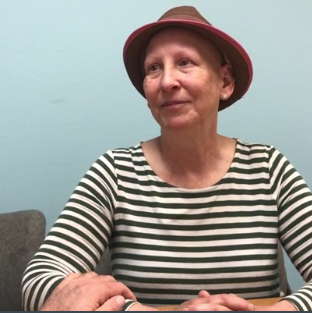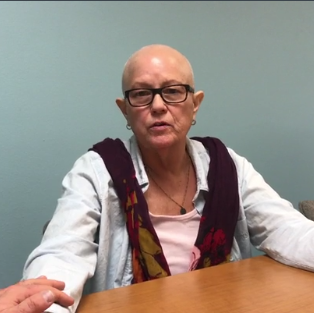Treating cancer can involve the use of one or more therapies, including surgery, chemotherapy, and radiation therapy. While these treatments are designed to attack cancer cells, they can also affect other cells in the body, causing side effects. Here are some of the common side effects that you might experience and how to manage them.
Common Cancer Treatment Side Effects
While the specific side effects you might experience during treatment are unique to you, common side effects include:
- Anemia. This refers to low red blood cell counts. Red blood cells help transmit oxygen through the body, and low counts can cause tiredness, trouble breathing, dizziness, and difficulty staying warm. Iron tablets or transfusions can help manage anemia.
- Fatigue. Extreme overall tiredness is one of the most common side effects of cancer treatment. It can have many causes but can be managed with medication, nutrition, or rest.
- Nausea and vomiting. These are among the most common side effects of chemotherapy and can occur during, after, or even in the lead-up to treatment. New antiemetic treatments can help manage these symptoms.
- Hair loss. Occurring usually 2-3 weeks into treatment, hair loss can occur across the whole body. Hair will usually begin to regrow a few weeks after treatment. Wigs and head coverings are popular ways to manage hair loss.
- Fever or infection. Low white blood cell counts can lead to an increased risk of infection. A high fever indicates an infection, which should be promptly managed according to your doctor’s recommendations.
- Mouth sores. Cancer treatments can affect the mouth, throat, and esophagus, causing sores that can affect diet and speech. Mouthwashes and ice chips are used to help minimize the effects of mouth sores.
- Low blood counts. Low blood counts are a common side effect and can have different symptoms depending on the type of blood cell affected. Low red blood cell counts cause anemia, while low counts of a specific type of white blood cell cause neutropenia, increasing susceptibility to infection. You might also experience thrombocytopenia or low platelet counts. These can cause internal bleeding or bruising.
- Depression. Depression and anxiety are common in people who have been diagnosed with cancer. If you experience symptoms such as a prolonged low mood, guilt, worthlessness, or hopelessness, your doctor or a mental health professional can help.
Cancer side effects can vary significantly in their severity depending on the individual, the extent of the cancer, and the type of treatment. However, there have been many improvements in therapies and medications to help mitigate cancer treatment side effects.
Managing Your Cancer Treatment Side Effects
Side effects can be an ongoing challenge throughout treatment. Here’s how to prepare for and manage your symptoms.
- Anticipate side effects. Before you begin your treatment, make sure that you understand that side effects may occur and that you know what to expect. Talk to your doctor about the likely side effects, when they can occur, and how to manage them.
- Log side effects. Keep a record of your treatment, including its schedule, and note any side effects on this record. This will help you and your care team see patterns in your side effects so that a management plan can be created.
- Understand the long-term impact. Some side effects are temporary, while others may be long-term or might not show up until years later. Make sure you talk to your care team about the long-term impact of your treatment so that you can plan for it.
- Medications and other therapies. Therapies for side effects have come a long way, and there are many new medications and treatments to help counteract the impact of cancer treatment. Your doctor can discuss possible options for you.
- Have a point of contact. Having someone to speak to if you’re worried or feeling unwell is vital. Make sure you have the numbers of people to contact about your physical or mental health and that you know when your symptoms warrant making the call.
- Have a support group. Having like-minded people who have been through or are going through the same thing can help you feel supported, heard, and understood. A support group can also provide resources and suggestions for managing during your treatment.
SWWO Is Always Here for You
At Southwest Women’s Oncology and Health, we know the importance of informing our patients about treatment side effects and their management. We’re available 24/7 to speak with our patients about any symptoms, side effects, or concerns – we always have your back. If you’ve received a cancer diagnosis and are looking for a caring, expert cancer care team, get in touch today.
TESTIMONIALS

“She made sure I understood everything. If I had questions after hours, I could always call her on her cell. I never felt like I was a burden. I know Dr. Finkelstein is here for me.”

“I was very impressed when I met Dr. Finkelstein. She was relatable. She has two young children and a career. I have two young children and a career.”

“They were very empathetic, very knowledgeable, very efficient and they are my friends today. I love them all. I come in here just to say hi to everybody and Dr. Finkelstein. I have complete and total trust in her and her abilities. Everything she has told me and done is just above board and I have complete faith in her.”

“I was so comforted and excited to have someone listen and hear what I had to say and actually supported me. I appreciated the balance immensely of true knowledge and willingness to be open to what I was finding in regard to alternative medicine.”

“I’m grateful that Karen came into my life. She has so much integrity and love for her patients and if you end up here you are in a good place.”
OUR MISSION
To help women triumph over their gynecologic and oncology needs in a warm and nurturing way.

